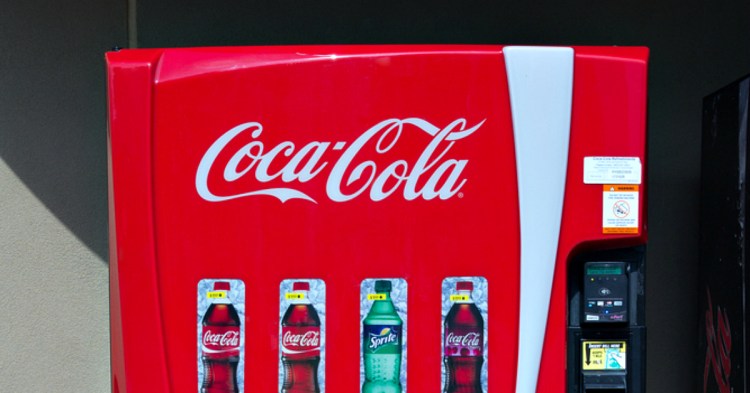We’re living in an era of extraordinary technological change. From smartphones to drones, the evidence is in our pockets, in the sky, at the office, and in the streets. The pace of technological evolution, though, can be even harder to keep up with than the Kardashians.
When asked to think about cutting-edge tech, I’ll be the first to admit that vending machines aren’t the first innovation to come to mind. However, the technology behind today’s most advanced vending machines is some of the most disruptive in the book.
Like today’s smartphones, which barely resemble the clunky, tethered machines of yesteryear, vending machines have undergone massive upgrades since dispensing holy water in the first century and their official debut in the 1880s. Trends like robotics, machine learning, self-service, and cashless pay are inspiring some truly amazing innovations and otherwise transforming the face of retail.
Modern vending machines let users make custom requests and get quality products on-demand, whether it’s frozen yogurt, skin care products, soda, or even weed, legality permitting.
June 5th: The AI Audit in NYC
Join us next week in NYC to engage with top executive leaders, delving into strategies for auditing AI models to ensure fairness, optimal performance, and ethical compliance across diverse organizations. Secure your attendance for this exclusive invite-only event.
But what I really want to talk about is the intelligence aspect of the vending revolution, because that’s the aspect most relevant to industries of all kinds. If robotics is the force driving vending machines forward, artificial intelligence is the next frontier — and we’re right on track.
Intelligent vending machines
What is an intelligent vending machine? As with anything, there are levels of intelligence both basic and advanced. If a machine knows how to give you the right change, that’s pretty basic, but it’s intelligence nonetheless.
Today’s vending machines are far smarter than their ancestors, and those with smart software and hardware prove it. For new-age machines, intelligence means interacting with your smartphone and logging your preferences or carrying out unique orders tailored to your needs. These machines incorporate machine learning and algorithms to better serve their users. Some can even make recommendations based on your preferences, just like Netflix does with movies.
Vending machine technology is advancing across the world, and innovation in this field is everywhere if you know where to look. With machine learning keeping pace with robotics, already-impressive machinery is setting the bar high.
Coca Cola’s smart digital vending machine, for instance, is sure to make waves when it’s launched in New Zealand and the U.S. Using AI software, this intelligent machine will feature a chatbot tool for users and will connect to the cloud so purchases can be made remotely for convenient pickup.
Then there’s the smart vending machine VICKI, short for Viatouch Intelishelf Cognitive Kinetic Interactions. This machine goes a step further by allowing users to log in through social media, fingerprints, or iris scans. It can provide information about products and display ads and make recommendations based on a person’s purchasing history,
As it turns out, tech giant Intel is on top of this trend, too. Intel’s machines offer “high-definition displays running rich graphics, the ability to interact with the customer’s smartphone, and more.” They promise an engaging shopping experience that uses touch-screen controls, video, audio, scent, gesture-based interaction, and cashless payment.
Smart vending on the rise
Even if you haven’t (yet) seen a smart vending machine, you will — and soon. According to a March 2017 report from U.S.-based Grand View Research, the market is expected to reach $11.84 billion by 2025. With growing intelligence, vending machines can provide brick-and-mortar quality goods while taking up far less space, making them both convenient and profitable.
According to Berg Insight, the world’s leading M2M/IoT market research provider, the number of intelligent vending machines will reach 3.6 million by 2020.
America represents the largest market for this technology worldwide, but we can look to Tokyo for what’s left to accomplish. Japan already has about one vending machine per 23 people, and these machines sell everything from fish soup to puppies.
Of course, not everyone is pleased by this trend. As with any form of automation, job loss is a concern. Some people have privacy concerns. To top it off, the technology is not always being applied well: Bodega, for instance, needlessly attempted to appropriate the classic New York corner store with a glorified vending machine. It may not have seemed like a bad idea, but while vending machine offer convenience, some things just can’t be replicated, and it’s safe to say bodegas are on that list.
Overall, the case for intelligent vending machines is still a good one, and there’s ample evidence to support this assertion. In a rapidly urbanizing world, they are a valuable way to sell products of all types in high-traffic communities. Machines known for high-calorie snacks can now even be programmed to serve healthier options, a boon to societies plagued with health issues.
They can also reduce waste and cost by using analytics and AI engines to help achieve the optimum mix of product, space, and price.
To those who are still unsure, I say let the chips fall where they may (get it?). Some shoppers may love the evolving vending experience more than others, but there’s no denying that the tech isn’t just as cool as a drone or a phone, it’s a trend with staying power.
Nick Yates is the chairman of GenerationNext Brands, the parent company to the revolutionary robotic vending concept Reis & Irvy’s.


